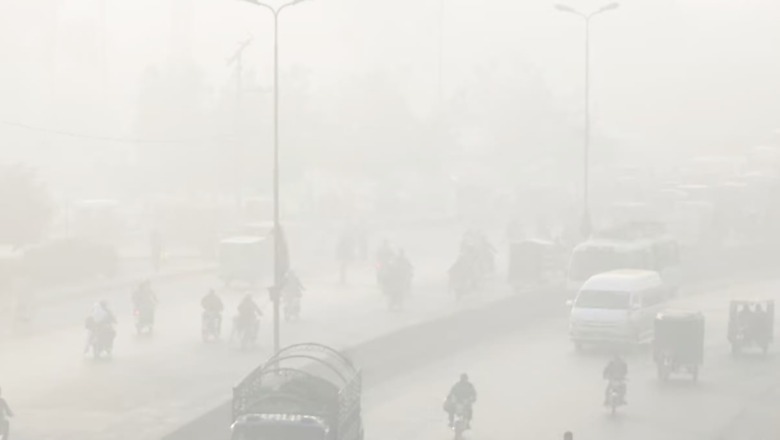
views
After an alarming Air Quality Index (AQI) of 394 in Lahore, Pakistan’s Punjab province has announced plans to use artificial rain to lessen the effects of pollution. It’s the second time that Lahore, Pakistan’s cultural capital and one of the cities that frequently experiences the worst pollution, plans to use cloud seeding to create artificial rain. The first cloud seeding, which cost Rs 350 million, was carried out in December 2023 to counteract dangerously high smog levels.
Lahore’s shocking AQI of 394 on October 21 made it the world’s most polluted city, as per reports. Values above 100 are deemed harmful, and those above 150 are deemed “very unhealthy.” The AQI evaluates the concentration of various contaminants in the air.
“Yesterday Lahore was declared the most polluted city in the world. We have taken several initiatives to address the matter and now we are planning for artificial rain in the city,” said Punjab Information Minister Azma Bokhari as quoted by The Times of India. She did not, however, share a date for it.
The Punjab government, under the leadership of Maryam Nawaz Sharif, established the ‘Anti-Smog Squad’ to keep a check on smog-affected areas because the dangerous pollution has resulted in serious health issues for city dwellers, such as coughing, breathing problems, eye irritation, and skin infections. These squads will be advocating the use of super seeders, teaching farmers about the dangers of burning crop leftovers, and providing alternative options for disposing of residues.
To lessen the effects of smog in the region, Punjab Chief Minister Maryam Nawaz Sharif previously called for “climate diplomacy” with India. She stated that due to air direction, stubble burning in Punjab, India, also affects the other side of the border; therefore, both sides should work together to eradicate smog.
Just like in the adjoining region of northwest India, meteorology has a significant impact on the amount of air pollution in north Pakistan. Farmers on both sides tend to burn stubble after harvesting the rainy season crop, which contributes to the pollution already created by transportation and industrial pollutants.




















Comments
0 comment